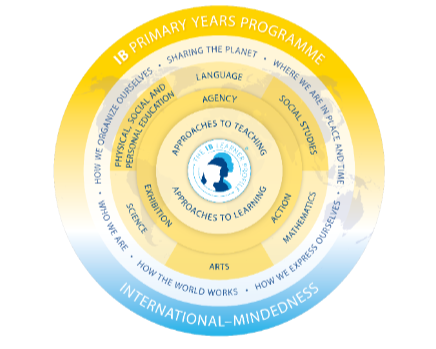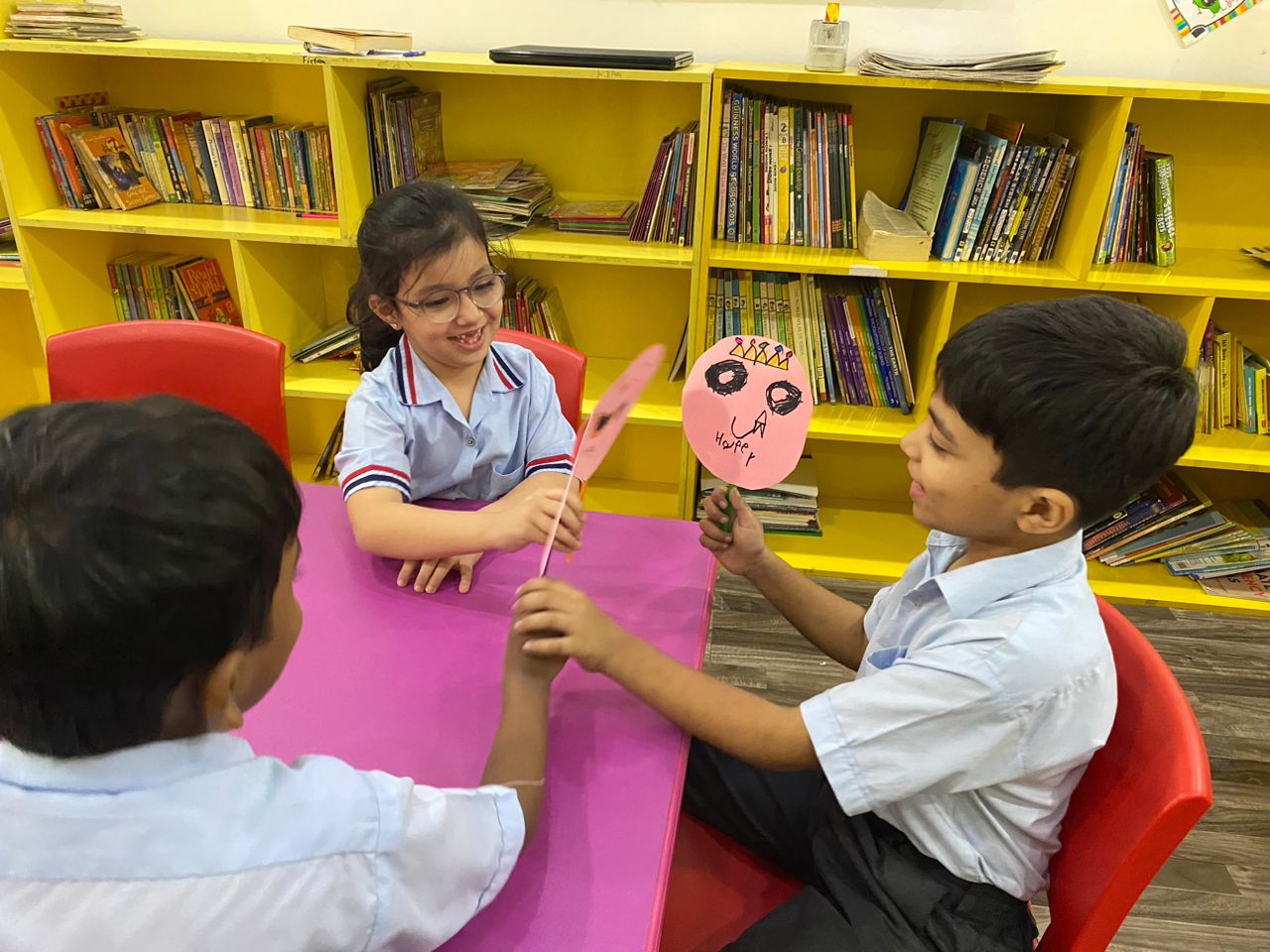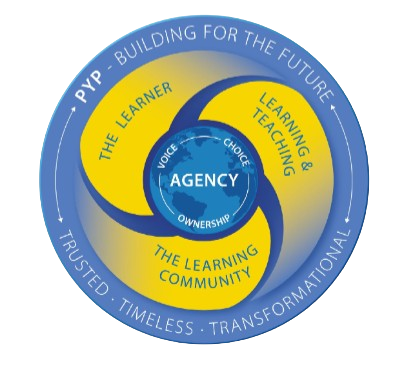Primary Years Programme
PYP
Primary Years Programme (PYP)
We offer IB Primary Years Programme (PYP) with internationally certified
experienced teachers to ensure a world class standard of teaching. We
follow the famous Kath-Murdoch Cycle of Inquiry which provokes critical
thinking, action and reflection.

Primary Years Programme is a curriculum framework designed for students aged 3 to 12. It prepares students for intellectual challenges of further education and
their future careers, focusing on the development of the whole child as an
inquirer, both in the classroom and the world outside
The PYP aims to create a curriculum that is engaging, relevant, significant, and
challenging for learners. PYP students are well prepared for the next stage of
education, including participation in the Middle Years Programme (MYP)

Through the six IB PYP transdisciplinary theme we integrate English, Mathematics and Science with social studies, Art, Music, foreign language to create a holistic approach of our programme. The students develop a lifelong love for learning and thus gain confidence to take appropriate action to build a better world.
Field trips, sports, project, planning and implementing activities, community service, presentation provide them further experiential learning opportunities. Children develop self-management and organizational skills by maintaining their portfolios, reflecting on their work and being assessed by their peers constantly receiving feedback to further enhance their learning.


Knowledge
-
A Program of Inquiry (POI) consists of six units that are age-appropriate, engaging, and challenging. These lessons inspire children to learn about the world and make connections between it and themselves. Transdisciplinary connections between subjects allows one to gain a deeper understanding of the subject matter taught.
Concepts
-
The IB PYP identifies seven key concepts which are the big ideas and drives learning experiences.
Approaches to Learning
-
The approaches to learning are a set of skills rooted in the notion of metacognition or learning how to learn. These skills set facilitate each child to face the current challenges of the world and become a problem responder.
Action
-
An IB learner takes on the responsibility of their own learning. It motivates learners to bring a positive change in the community and work towards peaceful solutions. This experiential learning helps them to take individual or collaborative actions in the form of participation, advocacy, social justice, entrepreneurship, and lifestyle choices.
Assessments
-
In the PYP, assessments are ongoing to inform instruction. Various phases of the learning process are supported by a variety of assessments. The students actively participate in the evaluation, using it as a tool for reflection to evaluate their development and establish objectives for the future. The assessments assist our teachers in modifying their instruction to better support individual needs.
PYP Exhibition (PYPx)
-
PYP Exhibition is the culmination of the PYP journey that takes place in the final year. Through the exhibition, students showcase their understanding of an issue that has local significance and global implications.
